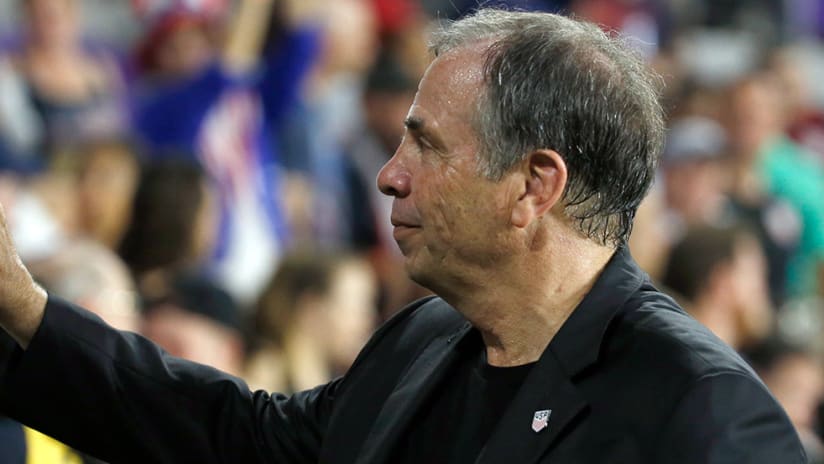As humiliating as failing to qualify for the 2018 World Cup may have been for now-resigned United States men's national team boss Bruce Arena, history suggests it won't tarnish the legacy of the most accomplished coach in American soccer.
We don't remember MLB great Davey Johnson overseeing his Washington Nationals as they gave back a six-run lead in Game 5 of the 2012 NLDS. We probably don't even know Kenny Dalglish oversaw Liverpool's worst league finish in 18 years during the 2011-12 Premier League season. And we've already forgiven basketball Hall of Famer Larry Brown for his bizarre departure from SMU basketball in early 2016 (or the New York Knicks in 2006 ... or well, you get the point).
Early, informal polling suggests fans are assigning blame evenly between Arena, predecessor Jurgen Klinsmann, U.S. Soccer President Sunil Gulati and a problematic youth development system. So it's a near-certainty that Arena's place in the American coaching pantheon remains secure. If anything, he's already regained some good will with a prompt resignation.
A better question is whether Arena's 11-month cameo is an accurate reflection of him as an international manager. And the answer is unequivocally yes.
Arena's shortcomings have been painted as predictability and over-reliance on trusted veterans. In truth, however, his national teams have always been a bit capricious.
For example, in 2017, the end result will obscure the fact that in eight CONCACAF Hexagonal matches, Arena's squads produced arguably the three most impressive qualifying performances in US history:
- In home games, the Americans completely dismantled and embarrassed Honduras and Panama, who may both end up representing CONCACAF in Russia next summer.
- The Yanks also put in their most complete qualifying performance ever at the Estadio Azteca, drawing Mexico, 1-1, and posing a consistent counterattacking threat they could've only dreamed of in previous successful meaningful trips there under Klinsmann and Steve Sampson.
In the process, Arena so fooled his counterparts that Mexico's Juan Carlos Osorio and Panama's Hernan Dario Gomez each made tactical subs before halftime.
It's almost illogical to think the same team could look completely intimidated at home against Costa Rica, or completely listless on the road at Trinidad & Tobago.
But consider the 2002 World Cup, when Arena's squad jumped to a three-goal lead en route to a 3-2 opening win over Portugal, only to issue a performance every bit as embarrassing as Tuesday's in a 3-1 loss to Poland. It took Portugal's stupidity to get reduced to nine men and South Korea's pride in front of a home crowd for the Koreans to win the other group finale 1-0 and send the US to the Round of 16 in the process.
Then consider 2006, when Arena's US squad spent 90 minutes in Kaiserslautern as every bit the equal of an Italian side that eventually went on to claim its fourth World Cup crown. That second group game was sandwiched by a dreadful 3-0 opening loss to the Czech Republic and a naive 2-1 loss to World Cup debutants Ghana.
It all suggests that Arena is often excellent at crafting Plan A, and often struggled with the deployment of Plan B.
Coaching talent better than most of his opponents', he usually only needed the former while winning five national championships with the University of Virginia and five MLS Cups between D.C. United and the LA Galaxy.
On the international front, while Arena many times led the US to be its best self, when adjustments were needed, he instead brought its worst to the fore. Our best selves are the ones we we often remember more readily. And for Bruce Arena, that best self is one worthy of its stature.













